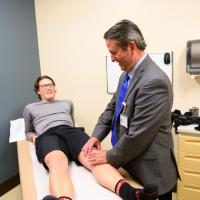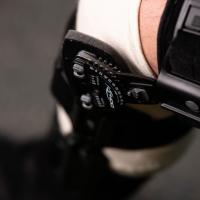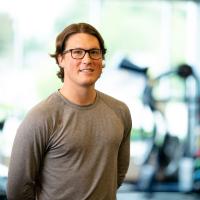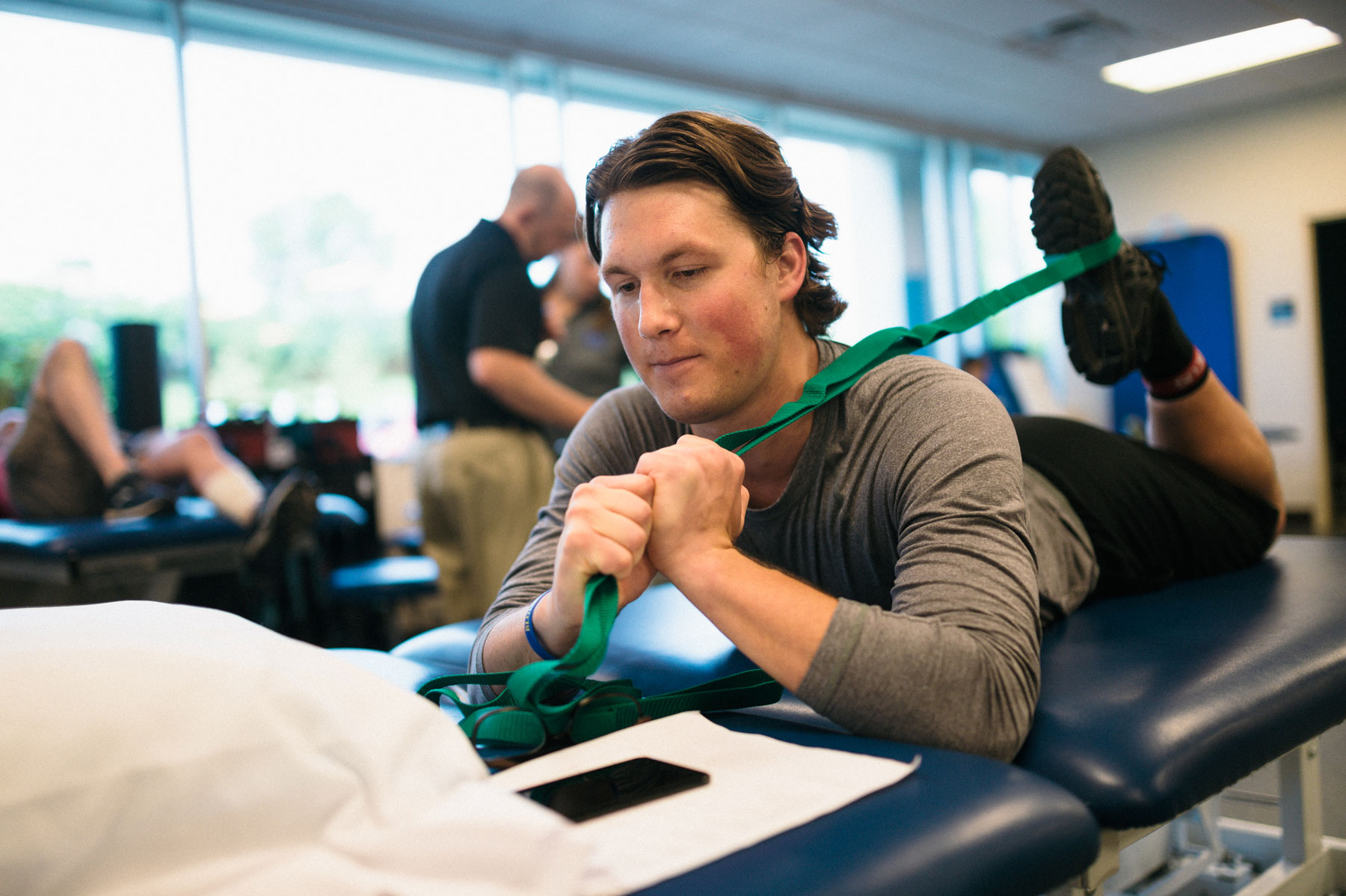
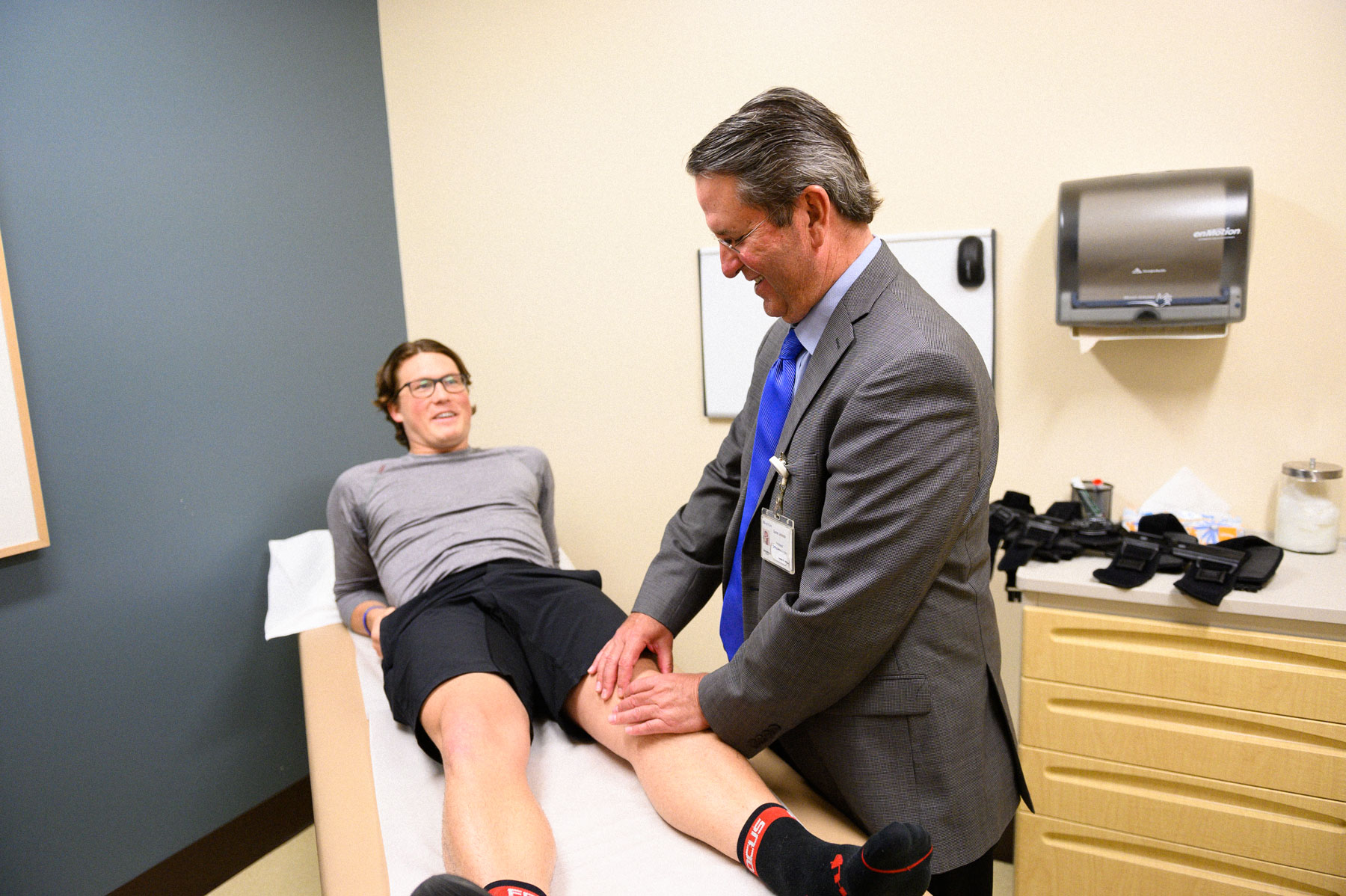
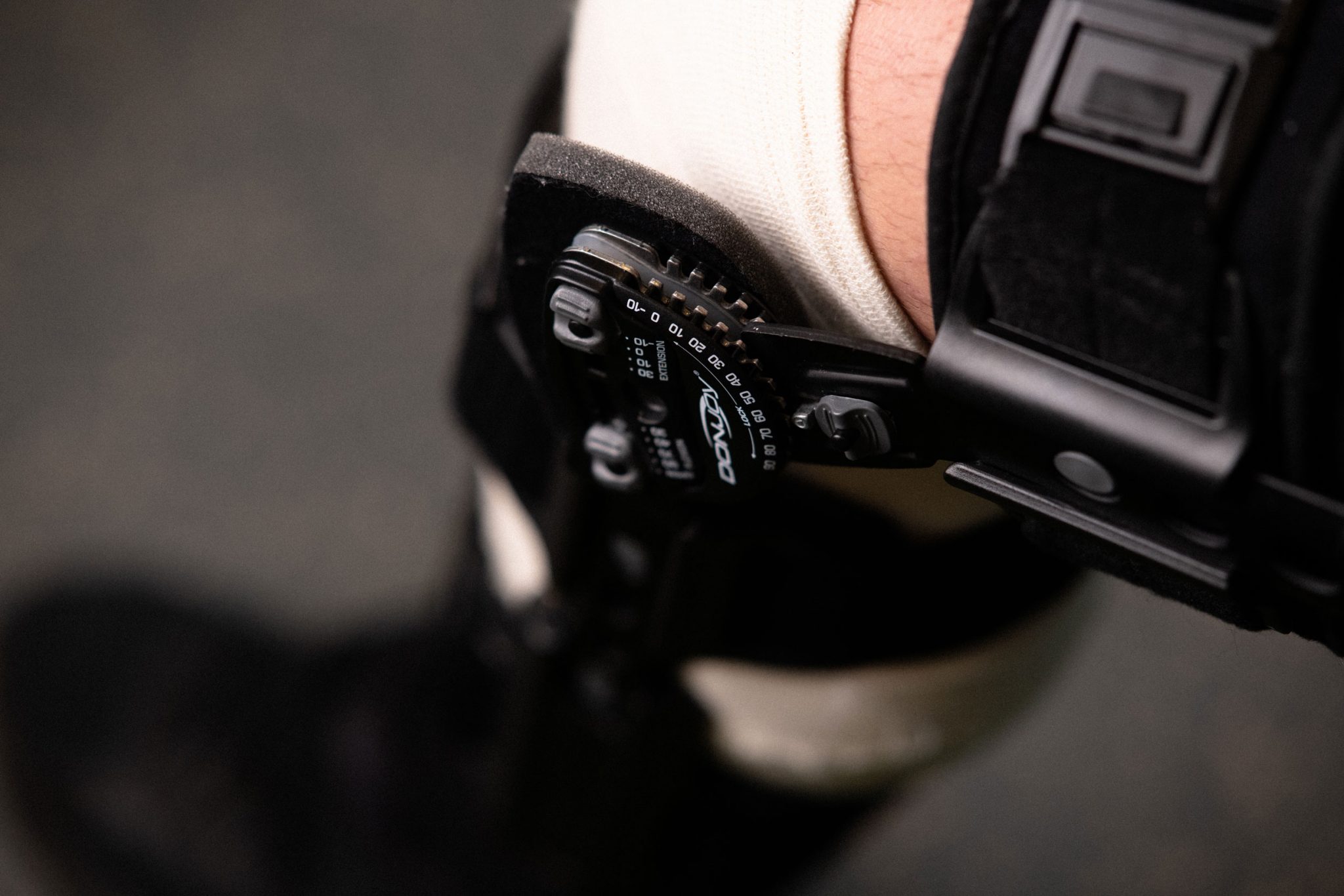
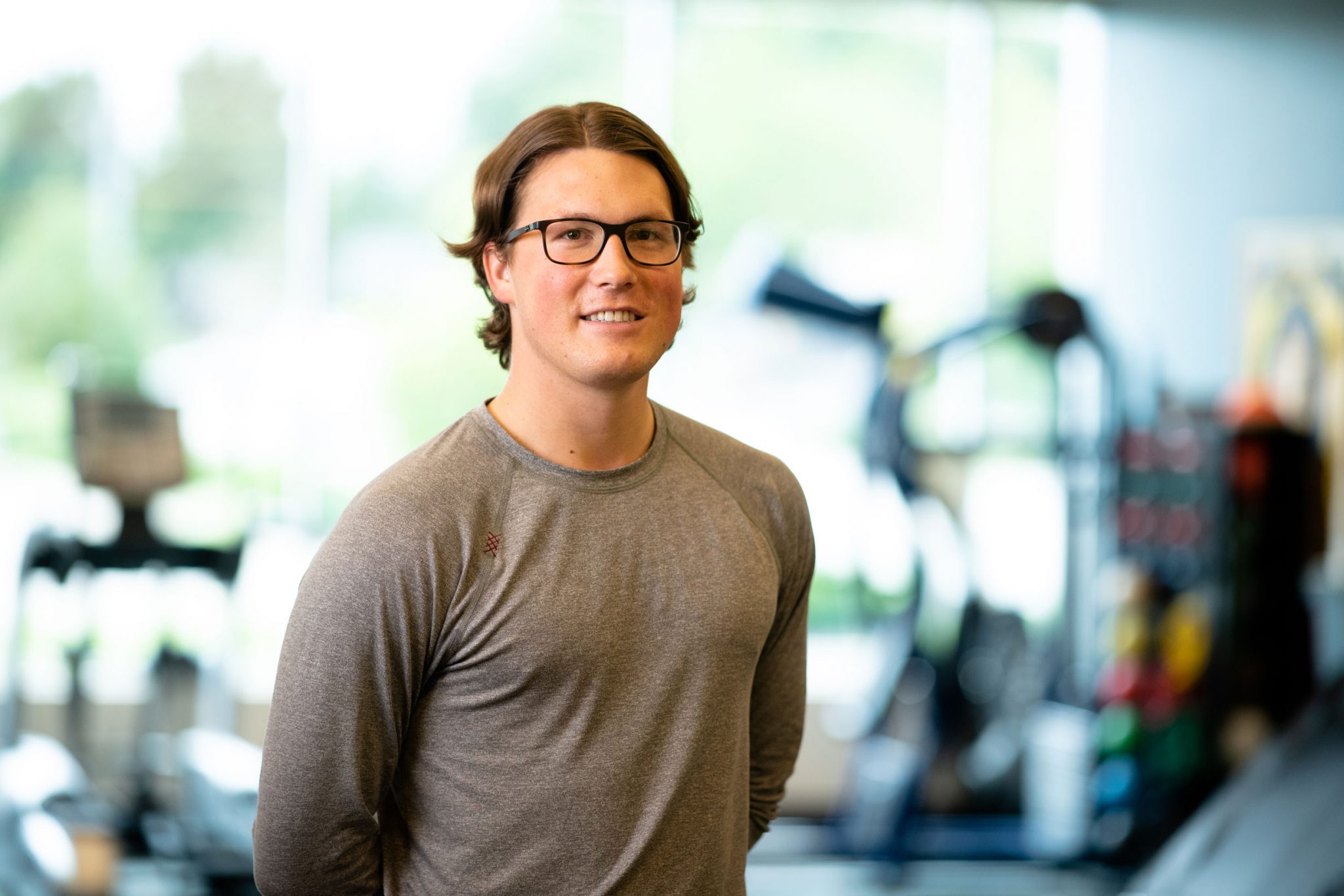

“They are the best. My knee is a testament to it.”
Just weeks after his latest surgery, Peter Gray, an athlete–turned–athletic trainer, was in the process of recovering from his third—and hopefully last—ACL reconstruction. As part of UK HealthCare’s Orthopaedic Surgery & Sports Medicine team, the choice of where to go for his surgery was an easy one: ACL expert Dr. Darren Johnson, with post-op care from UK HealthCare’s team of physical therapists.
Dr. Johnson, a knee specialist, is among the best in his field. As the head orthopaedic surgeon of UK athletics, he’s an expert when it comes to the needs of athletes, and is nationally recognized for his work in sports medicine. “When that player goes back on the field and back to doing what they love to do, you can’t beat it,” he said. “This is not a job to me. This is my calling.”
“I've always known these physical therapists,” said Peter. “But now, being able to work with them, I truly feel that they are some of the best. My knee is a testament to it. There's never been a time where I've gone backwards. They've always carried me forward. That just gives me more respect for them.”
Being at an academic medical center like UK HealthCare gives Peter access to the latest therapies as he rehabs his knee. Among those new therapies is blood flow restriction (BFR), which is based on recently-published research. It allows Peter to train at a lower weight and see more gains in his leg strength.
Even with more knowledge of ACLs than most patients, Peter’s recovery and rehabilitation process is the same as any other. He has a strict regimen of physical therapy and at-home exercises that he has to do, just like any other patient.
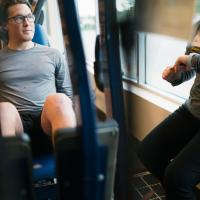
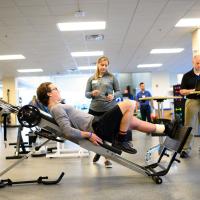
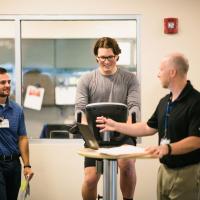
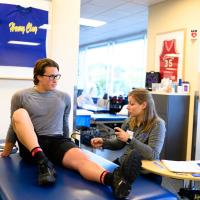
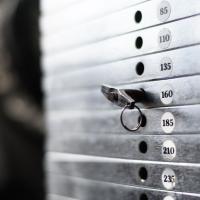
As Peter continues to heal his knee, he’s preparing to return to his job as an athletic trainer at Henry Clay High School in Lexington. While it’s an intense, active job that will require accommodations for his knee as it heals, he believes his experience with surgery and rehab will allow him to connect better with his student athletes.
“These kids that go through ACLs, they feel isolated from their sport because that's all their friends, and that sport is what they put all their energy in. I've been spending all my time with my leg up at home, isolated. They go through that same isolation. Having a support system really does help with recovery. It has definitely helped me, and I'm going to make sure that I do a better job of reaching out to all my athletes, and just being a support for them.”

